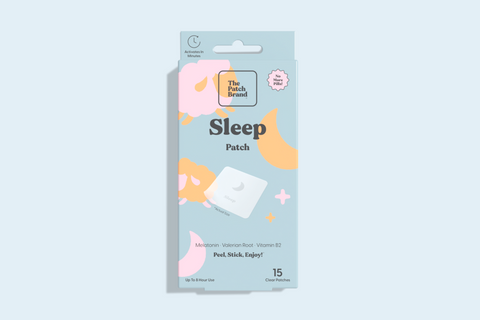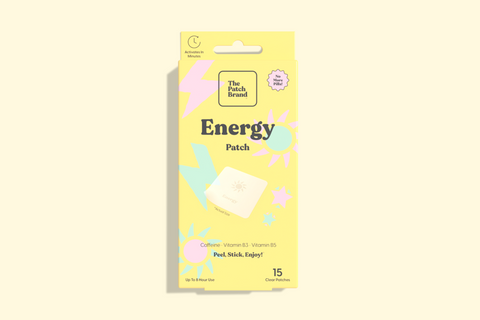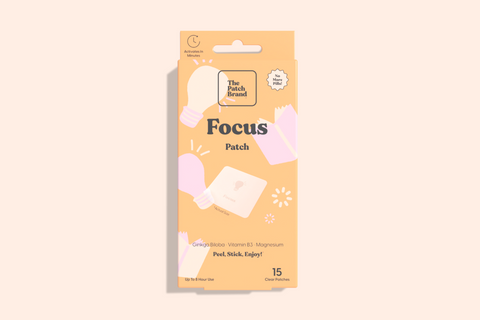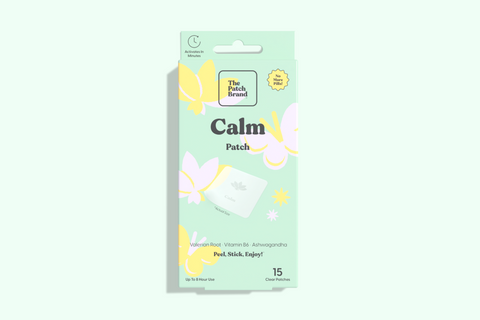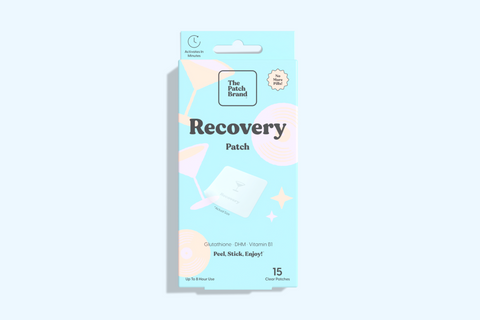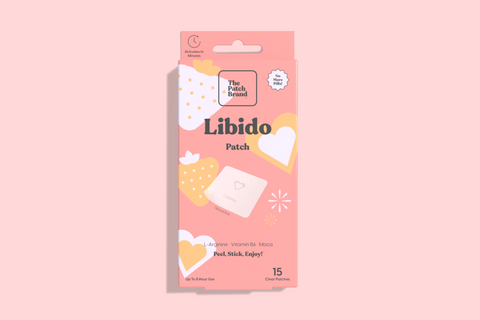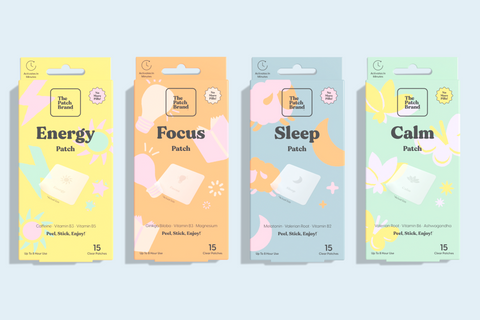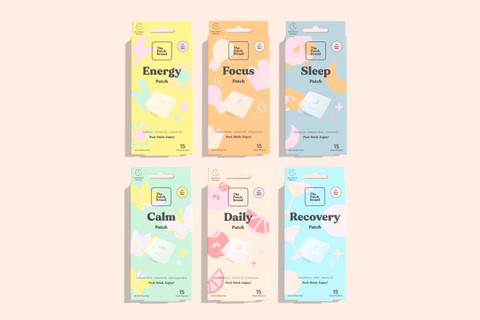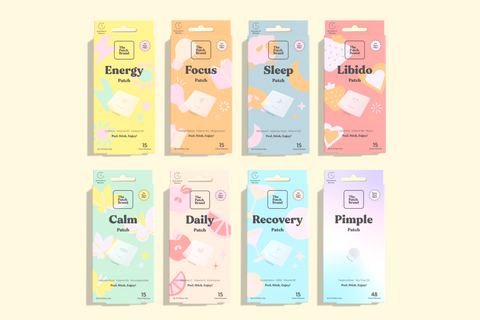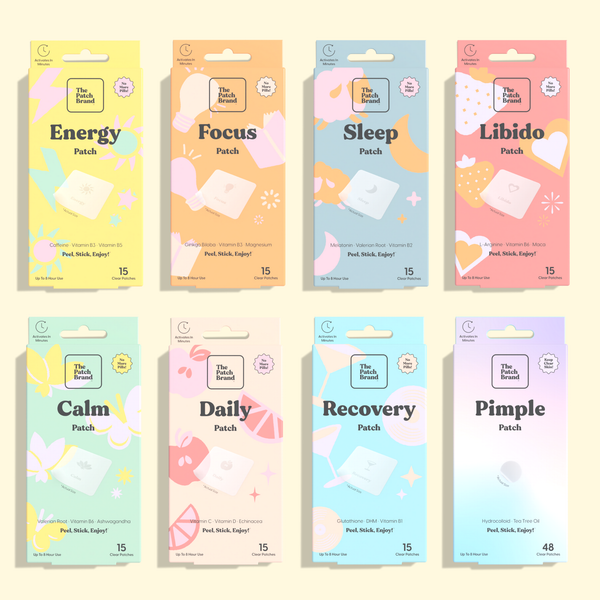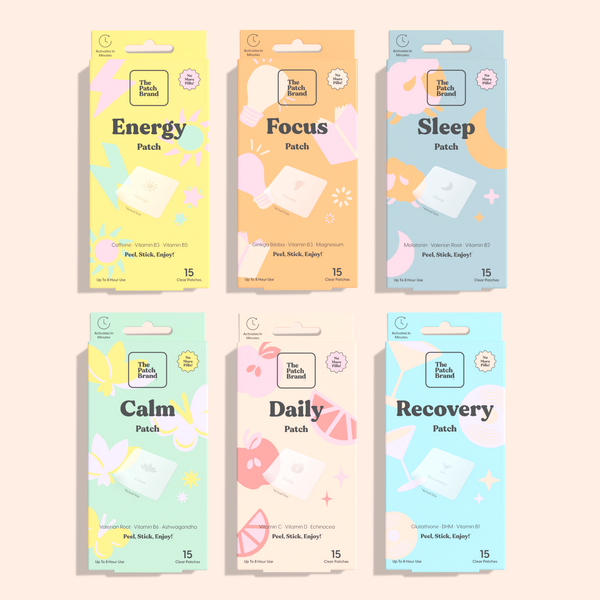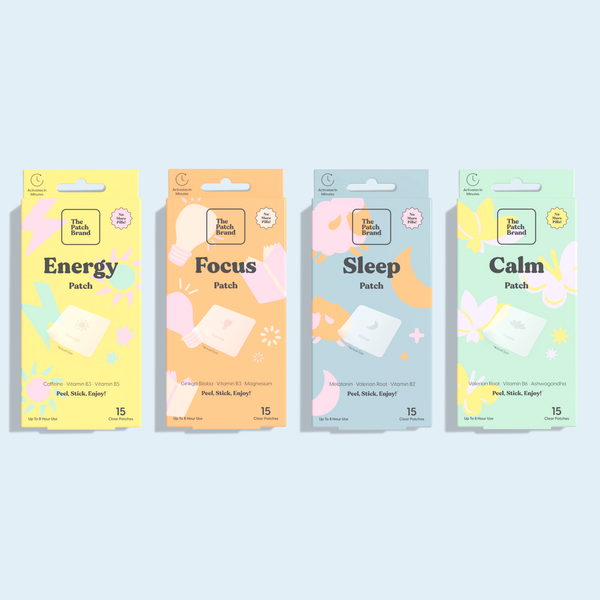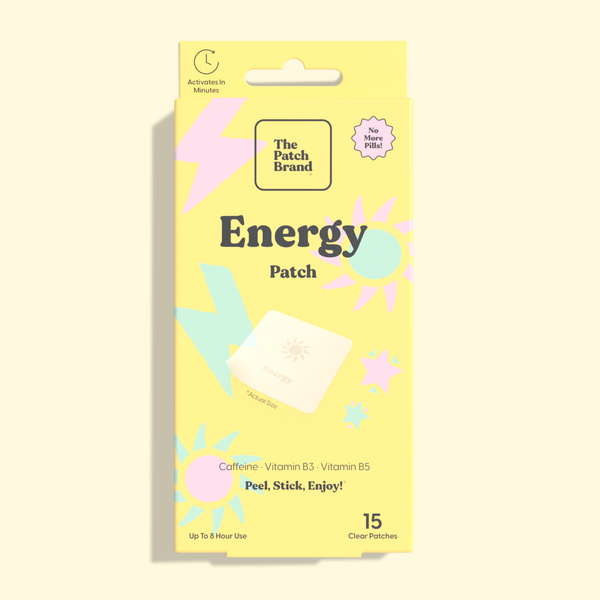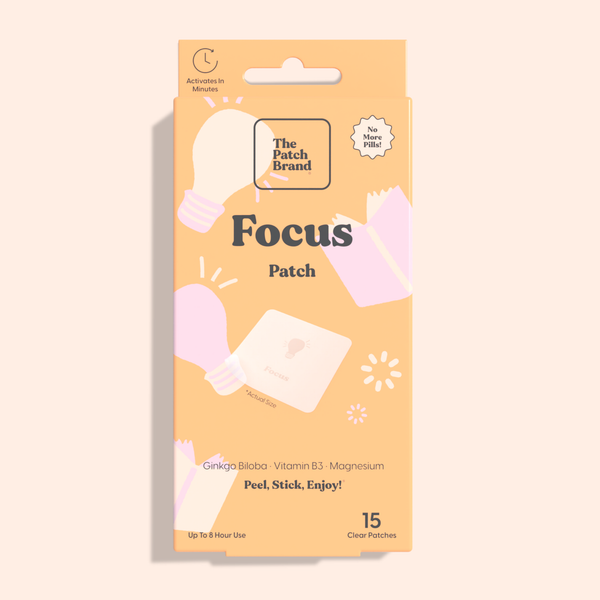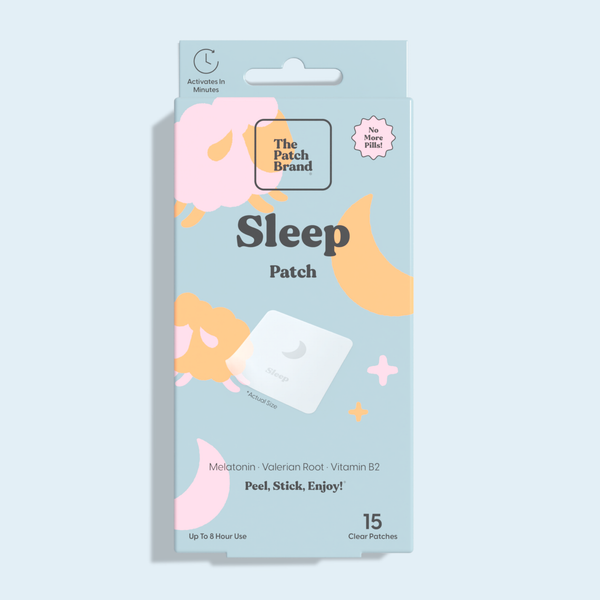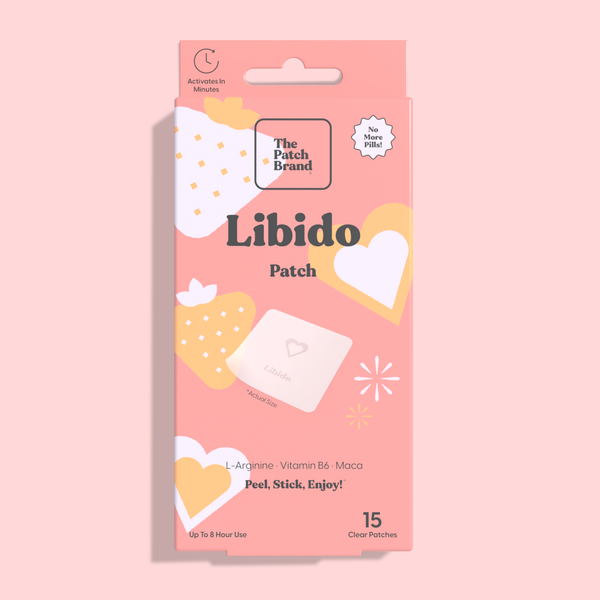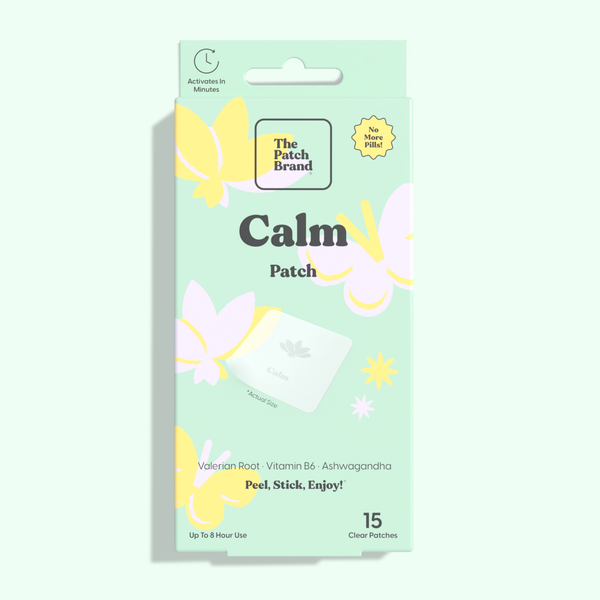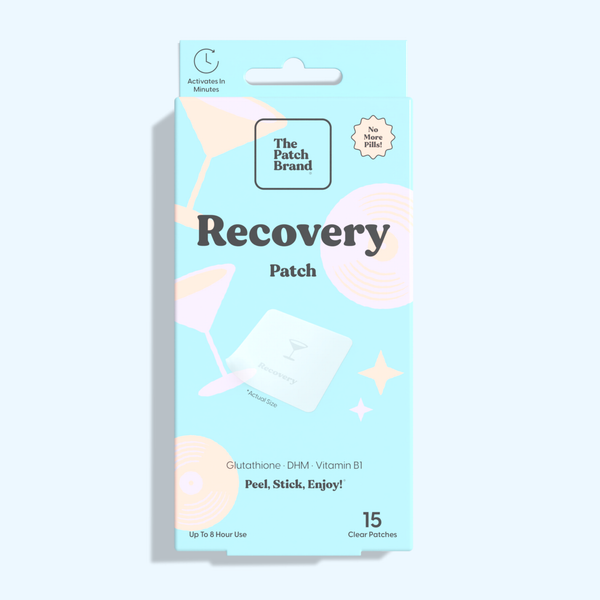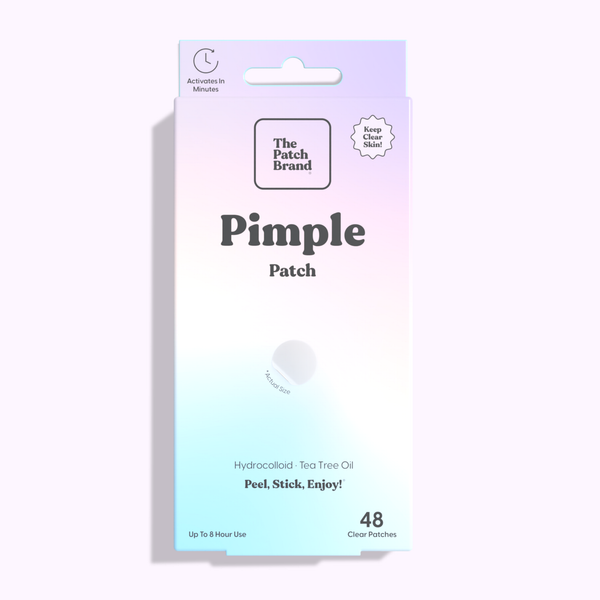Sleep is an essential aspect of overall well-being, as it allows the body and mind to rest, repair, and recharge. However, stress and anxiety can disrupt healthy sleep patterns, leading to a variety of physical and mental health issues. In this blog post, we will delve into the relationship between sleep and stress, focusing on how anxiety can affect the quality of rest. We will also discuss practical tips for individuals seeking to improve their sleep quality and reduce anxiety-related sleep disruptions, including the use of
sleep patches.

The Ways Anxiety Negatively Impacts Sleep
Difficulty Falling Asleep
The struggle to fall asleep when anxious is a common dilemma faced by many. Anxiety activates a cascade of thoughts related to various stressors such as job pressures, personal relationships, or broader life circumstances, which can significantly delay the onset of sleep. The mind remains actively engaged in these thoughts, making it tough to wind down and relax. Physical manifestations of anxiety, such as an increased heart rate, labored breathing, and tense muscles, contribute further to sleep difficulties. These symptoms not only discomfort but also perpetuate a cycle of sleeplessness and heightened anxiety. As the body misses out on necessary rest, anxiety levels can spike, worsening these physical reactions, and making the prospect of sleep seem even more elusive.
Frequent Nighttime Awakenings
Anxiety often disrupts sleep by causing vivid and unsettling dreams or nightmares. These can abruptly awaken the individual, disrupting the sleep cycle and making it challenging to fall back asleep. As a result, one may experience multiple awakenings each night, which compromises the quality of rest and can lead to feelings of exhaustion and irritability the following day. Moreover, anxiety tends to amplify one's sensitivity to environmental disturbances, such as unexpected noises or slight changes in room temperature. This increased alertness to surroundings further exacerbates the difficulty in achieving sustained, deep sleep. Each awakening fragments the sleep cycle, diminishing the restorative stages of sleep and contributing to a vicious cycle of sleep disturbance and heightened daytime anxiety.
Early Morning Awakenings
Anxiety can also lead to waking up too early, often driven by worries about the day ahead. This form of sleep interruption is particularly challenging because it cuts short the important final stages of sleep, which are crucial for cognitive functions and emotional regulation. Elevated stress levels, particularly noticeable with heightened cortisol production typical in anxious states, often trigger these premature awakenings. High cortisol levels in the morning disrupt the natural sleep-wake cycle and can pull individuals out of sleep too early, preventing them from getting the rest they need.
Consequences of Poor Sleep Due to Anxiety
Impaired Cognitive Function
Anxiety-induced sleep deprivation significantly impairs cognitive abilities, leading to noticeable deficits in memory retention, concentration, and the overall capacity to process information. When the brain does not receive adequate rest, its ability to function deteriorates, impacting daily tasks and decision-making processes. Individuals suffering from poor sleep may find themselves unable to focus on tasks, retain new information, or engage effectively in complex problem-solving. These cognitive impairments can severely affect one's professional performance and personal life, as they hinder the ability to think clearly and respond promptly in various situations. Creativity and flexibility in thinking are compromised, making it difficult to find innovative solutions or adapt to changing circumstances.
Weakened Immune System
Chronic sleep disruption, often caused by anxiety, compromises the immune system's ability to fight off pathogens, leading to an increased susceptibility to infections such as the common cold, influenza, and other health complications. During sleep, the body undergoes various recovery processes, including the release of cytokines, which are critical for combating inflammation and infection. Inadequate sleep hampers this natural defense mechanism, leaving the body more vulnerable to illnesses and extending the duration of recovery when sick. This can create a cycle where a weakened immune system contributes to more frequent illness, which in turn can exacerbate anxiety due to increased health concerns and related stress. Regular, restful sleep is essential not only for maintaining immune health but also for ensuring effective recovery from illness, therefore promoting overall physical health and resilience against potential health threats.
Mood Disturbances
It also commonly leads to heightened irritability, quickness to anger, and significant fluctuations in mood, which can strain interpersonal relationships and decrease the overall quality of life. These mood disturbances make individuals more reactive to daily stressors, often resulting in overblown emotional responses to minor inconveniences. Chronic sleep issues can also increase the likelihood of developing more serious mental health conditions, such as depression. The linkage between chronic sleep disruption and depression is especially concerning, as it can lead to deep feelings of sadness, loss of interest in life, and an overwhelming sense of hopelessness, which can spiral into a self-perpetuating cycle of sleep issues and depressive symptoms.
Heightened Stress Response
This heightened sensitivity to stress can lead to an increased perception of and reactivity to everyday stressors, creating a deleterious loop of anxiety and sleep disturbances. As sleep quality continues to decline, the body's ability to manage and mitigate stress deteriorates, leading to an amplification of anxiety symptoms. This cycle not only disrupts mental health but also affects physical health by contributing to high blood pressure, heart disease, and other stress-related conditions. The escalation of anxiety and stress responses further complicates the ability to achieve restful sleep, perpetuating a cycle of ongoing disturbance and emotional unrest.
Practical Tips for Improving Sleep Quality and Reducing Anxiety-Related Sleep Disruptions
Establishing a Consistent Sleep Schedule
Creating a consistent sleep schedule is a crucial step toward achieving better sleep quality and overall well-being. By going to bed and waking up at the same time each day, even on weekends, you help regulate your body's internal clock, also known as the circadian rhythm. This synchronization makes it easier to fall asleep and wake up naturally,
reducing instances of insomnia and daytime sleepiness. A regular sleep pattern supports the effectiveness of the body’s sleep-wake homeostasis, which balances sleep pressure accumulated during waking hours. Adhering to a regular schedule also discourages habits that can disrupt sleep, such as late-night screen time or irregular napping, promoting a more consistent alertness throughout the day.

Creating a Relaxing Bedtime Routine
Activities that promote relaxation can greatly improve the quality of your sleep by signaling to your body that it's time to wind down. Here are ways to incorporate calming activities into your nightly routine:
-
Reading: Diving into a book before bed is an excellent way to escape the pressures of the day. Choose materials that are engaging yet soothing, avoiding thrilling or stressful content. Reading helps shift your brain away from the anxieties of your daily routine, promoting mental relaxation. This detachment from daily stressors makes it easier to transition into a peaceful sleep, as the narrative world of a book gently nudges the mind towards restfulness.
-
Listening to Calming Music: Music has a profound effect on the brain's neurochemistry; it can lower cortisol levels and enhance feelings of relaxation. Opt for genres that are known for their calming effects, such as classical, jazz, or ambient music. The rhythmic nature of soft music helps slow the heartbeat and relax the muscles, setting a serene atmosphere perfect for bedtime. Listening to calming tunes as part of your bedtime ritual can significantly enhance the quality of your sleep, providing a peaceful transition from wakefulness to sleep.
-
Practicing Gentle Yoga: Focus on poses that are known for promoting relaxation such as forward bends, gentle spinal twists, and legs-up-the-wall poses. These movements encourage deeper breathing and help alleviate physical discomforts that might prevent you from falling asleep. Integrating gentle yoga into your evening routine helps in calming the nervous system and preparing both mind and body for a restful night.
-
Taking a Warm Bath: A warm bath before bedtime can do wonders for your sleep quality. The warmth of the water helps to increase your body's core temperature. When you step out of the bath, your body cools down quickly, which mimics the natural drop in temperature associated with drowsiness, thereby signaling your body that it's time to sleep.
Optimizing your sleep environment plays a crucial role; this includes maintaining a cool, quiet, and dark bedroom. Utilizing blackout curtains, eye masks, or white noise machines can also help eliminate disruptions. Investing in high-quality bedding can further enhance comfort and support throughout the night. As part of your routine, avoid stimulants such as caffeine and electronics that emit blue light, as they can inhibit the production of melatonin, the hormone responsible for regulating sleep. A consistent nightly routine not only aids in faster sleep onset but also deepens sleep, making it more restorative.
Practicing Stress Management Techniques
Incorporating stress management techniques into your daily routine can significantly improve sleep quality by reducing anxiety and promoting relaxation. Practices such as mindfulness and meditation enhance mental clarity and focus, allowing for a smoother transition to sleep. Techniques like deep breathing exercises or progressive muscle relaxation can be particularly effective in the evenings, as they help to reduce physical and mental tension accumulated throughout the day. Engaging in these practices regularly can lower stress levels and enhance overall emotional resilience, making it easier to unwind at bedtime.
Additionally, integrating physical activities into your routine, such as swimming, cycling, or a brisk walk, can help in managing stress effectively. Exercise not only reduces symptoms of anxiety and depression but also increases the amount of deep sleep you get, which is essential for brain health and immune function. Combining physical and mental relaxation techniques ensures a holistic approach to stress management, paving the way for a restful night’s sleep.

Considering Sleep Patches
A
sleep patch is an innovative solution for people who struggle with sleep. They offer a convenient, effective, and non-habit-forming alternative to traditional sleep aids such as pills or sleep-promoting teas. Sleep patches contain a blend of vitamins and minerals that are known to promote relaxation and restorative sleep, such as melatonin, magnesium, and other essential
vitamins for sleep. When applied to the skin, the
sleep aid patch delivers these sleep-enhancing nutrients directly into the bloodstream, bypassing the digestive system and leading to better absorption. Here are some of the benefits of using sleep patches:
-
Gradual Release of Sleep Vitamins: Unlike oral supplements that can release active ingredients rapidly, sleep patches provide a more natural and gradual release of sleep vitamins. This method ensures a steady supply of nutrients throughout the night, which can help in maintaining a more consistent sleep cycle. This gradual process helps in avoiding the sudden influx that can occur with pills, making it easier for the body to manage and utilize these nutrients effectively.
-
Enhanced Absorption of Nutrients: One significant advantage of sleep patches is that they bypass the digestive system. When using oral supplements, some of the active ingredients can be lost due to the breakdown and absorption processes in the digestive tract. Sleep patches deliver nutrients directly through the skin, leading to better absorption and utilization of sleep-enhancing vitamins and minerals.
-
Convenience and Safety: They are simply applied to the skin before bedtime and work throughout the night. This method is also non-habit-forming, providing a safe alternative to other sleep aids that might carry risks of dependency or adverse side effects. The simplicity of using a patch can make it an attractive option for those who prefer not to take pills or for those who have difficulty remembering to take supplements at specific times.
-
Improved Sleep Quality: Utilizing sleep patches can significantly enhance the quality of sleep. By providing essential nutrients known to support sleep, such as magnesium and melatonin, these patches can help users fall asleep faster and achieve deeper, more restful sleep. This improvement in sleep quality can lead to feeling more refreshed and energized upon waking, which can have a positive impact on overall health and well-being. This benefit is especially valuable for those who struggle with sleep disturbances or irregular sleep patterns.
Sleep patches are an excellent option for those who are looking for a natural and effective way to improve their sleep quality through the use of a sleep vitamin. Whether you're an insomniac, have trouble falling asleep, or simply want to improve the quality of your sleep, a
vitamin patch for sleep can help. They are easy to use, convenient, and offer several benefits over traditional sleep aids. With the bonus of being non-habit-forming, a
sleep patch is a great option for those seeking to improve their sleep quality naturally and effectively through the use of a
sleep vitamin.
Understanding the relationship between sleep and anxiety is essential for promoting overall health and well-being. By implementing practical strategies, such as establishing a consistent sleep schedule, creating a relaxing bedtime routine, practicing stress management techniques, and considering the use of
vitamin patches for sleep, individuals can improve their sleep quality and reduce anxiety-related sleep disruptions. If anxiety continues to interfere with sleep, it's important to seek professional help to address the underlying issues and prioritize sleep health.



